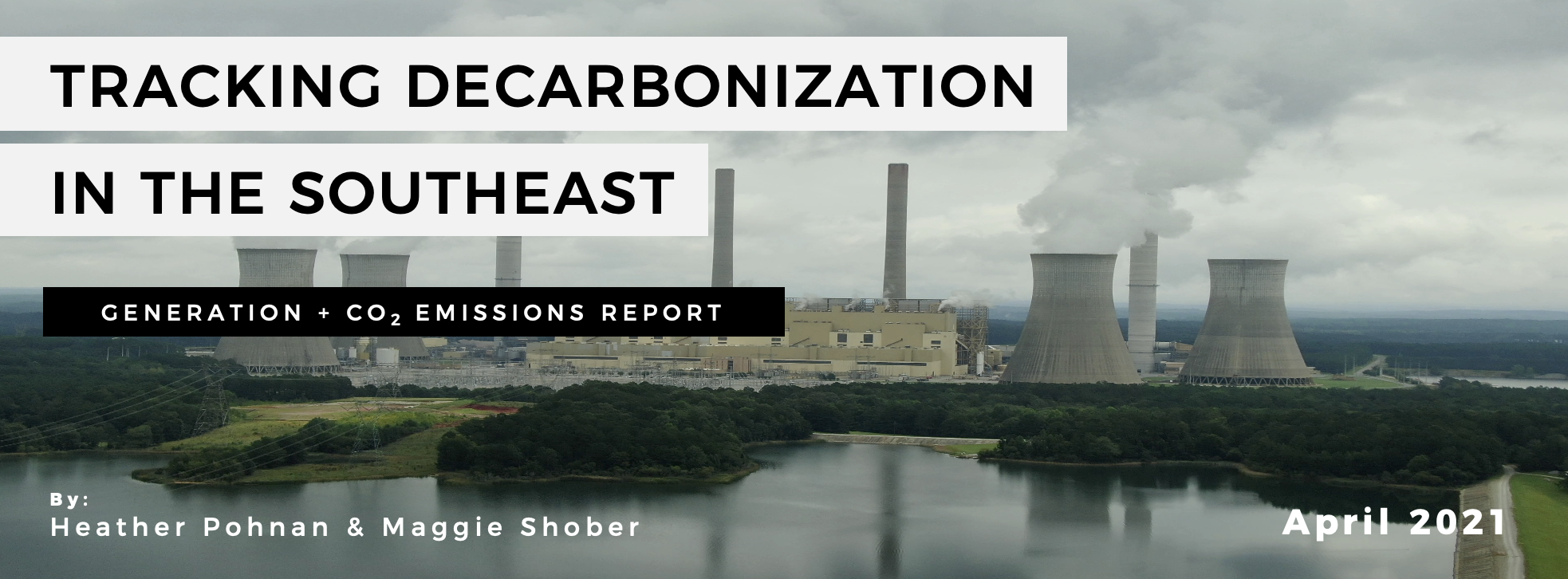“Tracking Decarbonization in the Southeast”

Download the Report
Watch the Report Webinar
Read the Report Blog Post
Take Action: Urge Congress to Pass a 100% Clean Electricity Standard
The third annual “Tracking Decarbonization in the Southeast: Generation and CO2 Emissions” report, by the Southern Alliance for Clean Energy (SACE), analyzes generation and emissions from the electric power sector in the Southeast over the past decade and as planned for the next fifteen years.
The Southeast is home to some of the biggest utility systems in the nation – Duke Energy, Southern Company, NextEra, and the Tennessee Valley Authority – and the role that electric utilities are, or aren’t, playing in decarbonizing the power supply is more critical than ever as the Biden Administration aims for a carbon-free power sector by 2035.
Several electric utilities in the region have set long-term goals to reduce carbon dioxide (CO2) emissions by transitioning away from fossil fuels. However, despite moderate improvements in many utility plans, current utility plans for how to meet future load fall short of the trajectories recommended to avoid the worst of the climate crisis.
SACE staff compiled historical data and examined the latest resource plans for major utilities to understand what the power supply will look like in the future, and how much carbon pollution it will emit. SACE analysis accounts for how power is sold between utilities and states. Therefore, this report is unique in that it presents power-related emissions for the utility or state where the power is ultimately consumed, not where it is generated.
In a webinar on April 21, report authors Heather Pohnan and Maggie Shober provided an overview and examined insights and trends presented in the report, including:
- Rate of decarbonization based on current utility plans
- Continued utility operation of coal power plants and investment in new gas infrastructure
- Interplay between the electric power and transportation sectors
- Impact of federal and state policy on the electricity fuel mix in the region
- Opportunities for decarbonization through utility resource planning and the expansion of competition in the regional electric sector